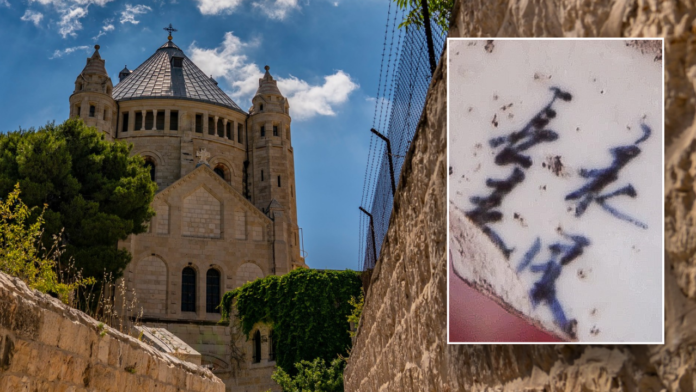Archaeologists recently discovered the oldest-known Chinese inscription at the holy site of Mount Zion, according to the Israeli Antiquities Authority (IAA).
The inscription, which was found on a porcelain bowl, was discovered during a joint excavation between the IAA and the Protestant Institute of Archaeology. The artifact demonstrates “the relationship between the Land of Israel and China,” according to a press release published by the agency this month.
According to the IAA, the porcelain bowl dates back to the 16th century. Its inscription reads, “Forever we will guard the eternal spring,” and was spotted sticking out of the dirt by an excavator.
“This past summer, during routine procedures for the upcoming excavation season, Michael Chernin, an archaeologist at the Israel Antiquities Authority, suddenly spotted a colorful object sticking out of the dirt that had been cleared away while preparing the site,” the IAA’s post reads. “When Michael pulled out the object and washed it, he recognized that there was an inscription on its bottom.”
US-EGYPTIAN ARCHAEOLOGICAL TEAM UNCOVERS 4,000-YEAR-OLD TOMB NEAR LUXOR WITH JEWELRY, OTHER ARTIFACTS
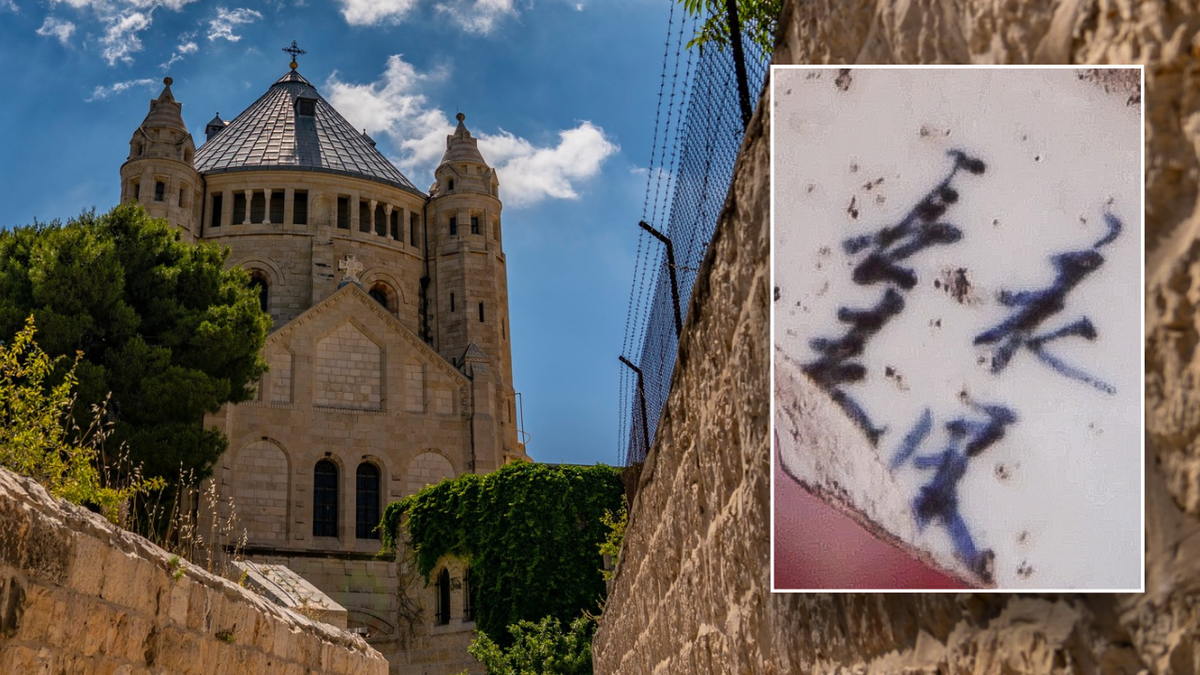
The oldest-known Chinese inscription found in Israel was recently discovered at the holy site of Mount Zion. (Israel Antiquities Authority via Facebook)
The IAA reported that many of the excavation’s findings date from the Second Temple period to the Byzantine era but that the newly discovered porcelain bowl had an “unexpected origin.”
The bowl, which was likely produced during the Ming Dynasty between 1520 and 1570, is emblematic of the trade relations between Imperial China and the Ottoman Empire. It is the first bowl found in Israel to contain a Chinese inscription, though other ancient Chinese pottery has been found.
FLORIDA PROFESSOR FINDS EVIDENCE THAT ANCIENT EGYPTIANS DRANK HALLUCINOGENIC COCKTAILS
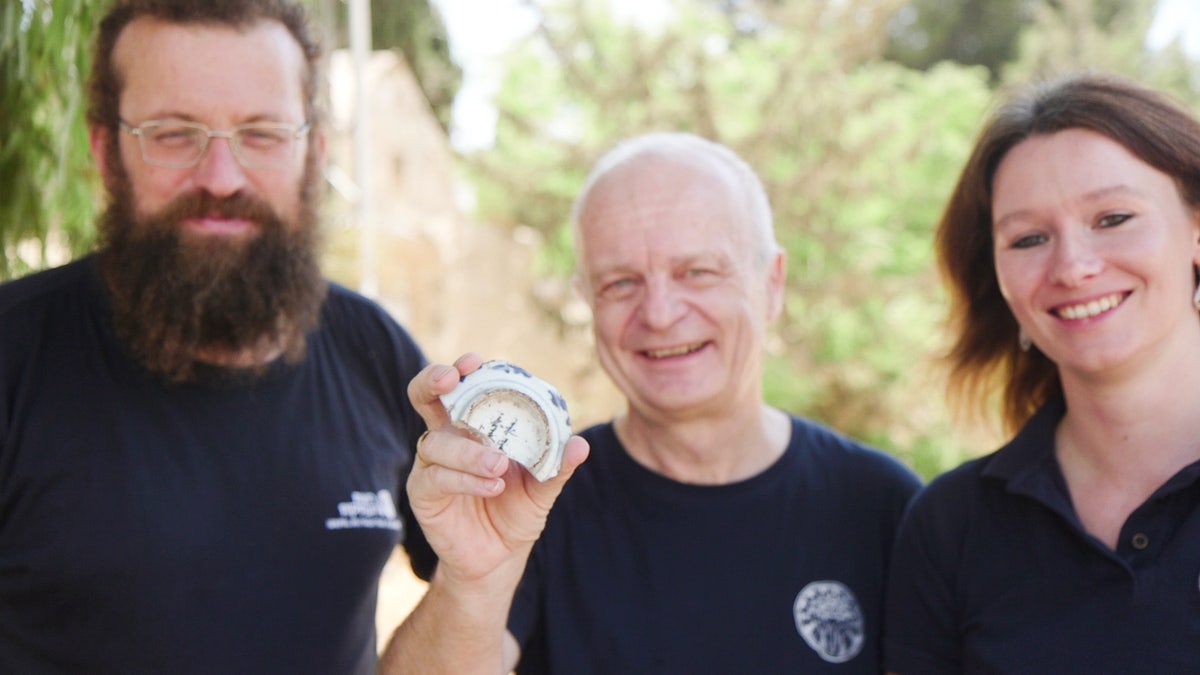
The bowl was likely produced during the Ming Dynasty between 1520 and 1570. (Israel Antiquities Authority via Facebook)
“According to Ming Dynasty annals, about 20 official Ottoman delegations visited the imperial court in Beijing during the 15th-17th centuries,” the Facebook post reads. “The trade relations between these empires are also described in travel books of merchants from this period.”
“Thus, the writings of the Chinese scholar Ma Li from 1541 note colonies of Chinese merchants in Lebanese coastal cities such as Beirut and Tripoli. The work even mentions other important cities in the region such as Jerusalem, Cairo and Aleppo.”
CLICK HERE TO SIGN UP FOR OUR LIFESTYLE NEWSLETTER
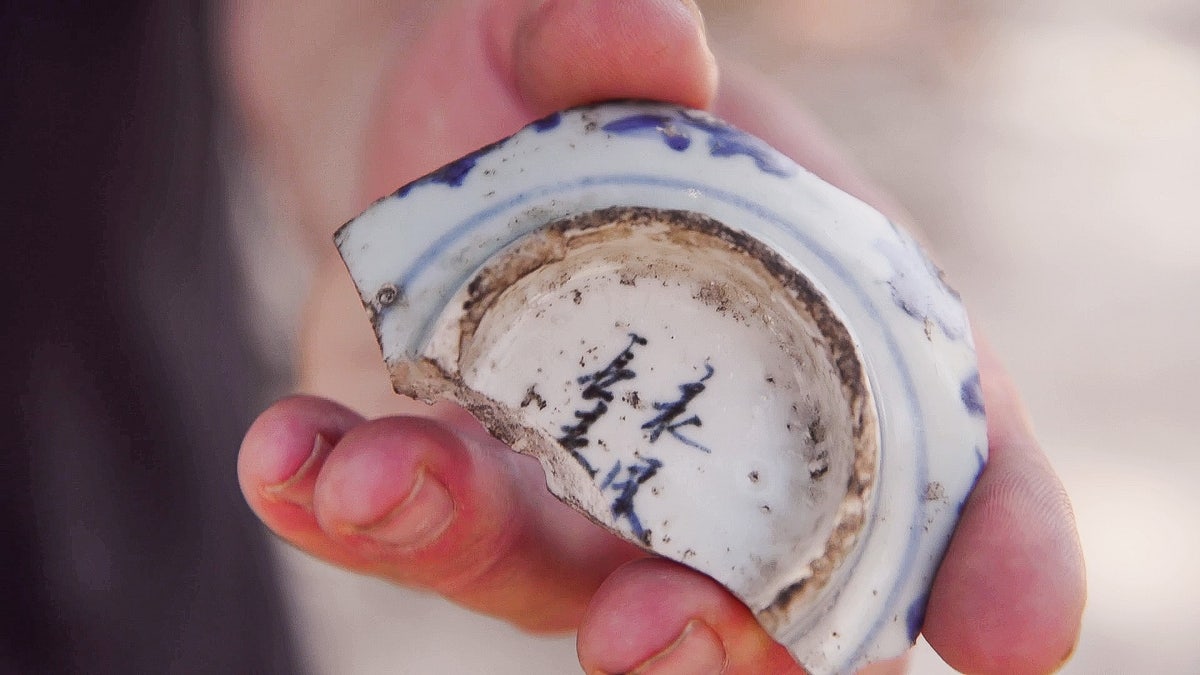
The artifact shows “the relationship between the Land of Israel and China” and was “uncovered in Jerusalem on Mount Zion,” according to the IAA. (Israel Antiquities Authority via Facebook)
According to certain Christian traditions, the Last Supper is said to have been held in the Upper Room, or the Cenacle, of Mount Zion. In the New Testament, the mount is also described as symbolic of God’s promises.
The site is also religiously significant to Jews as the Ark of the Covenant was kept at Mount Zion during King David’s reign.
CLICK HERE TO GET THE FOX NEWS APP
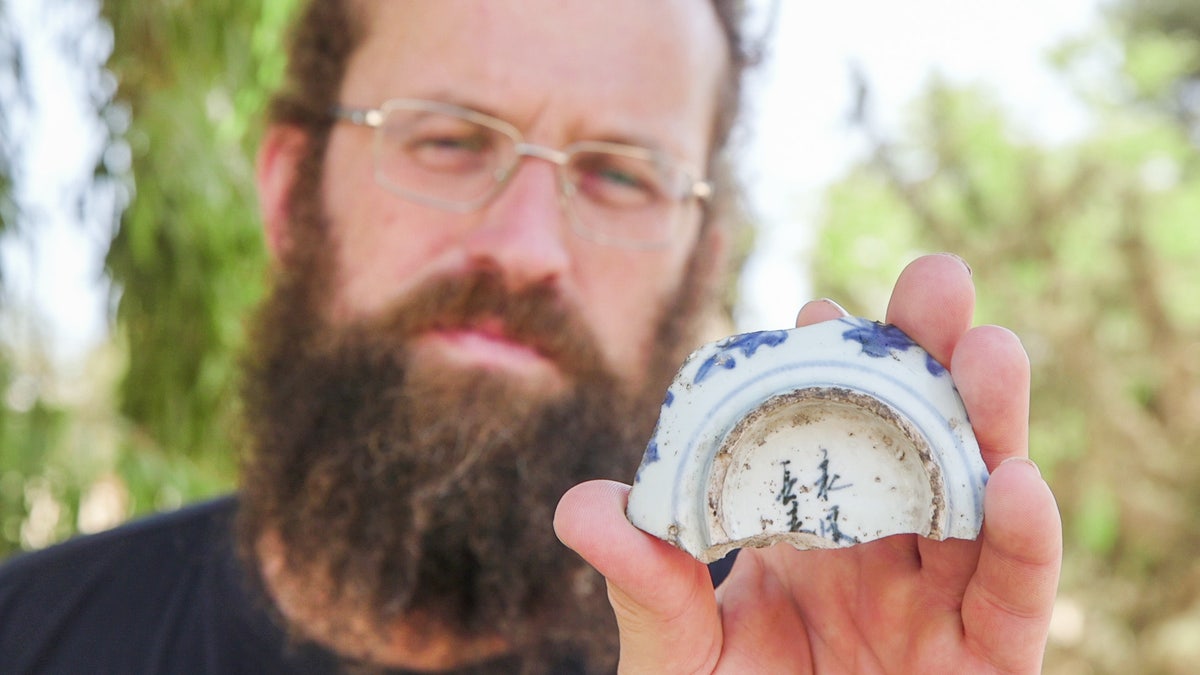
The centuries-old Chinese bowl is evidence of trade between Imperial China and the Ottomans. (Israel Antiquities Authority via Facebook)
“In archaeological research, evidence of trade relations between merchants in the Land of Israel and the Far East is known even from earlier periods – for example, of various spices,” IAA Director Eli Escusido said in a statement. “But it is fascinating to meet evidence of these relations also in the form of an actual inscription, written in the Chinese language, and in an unexpected place – on Mount Zion in Jerusalem!”
For more Lifestyle articles, visit foxnews.com/lifestyle.
